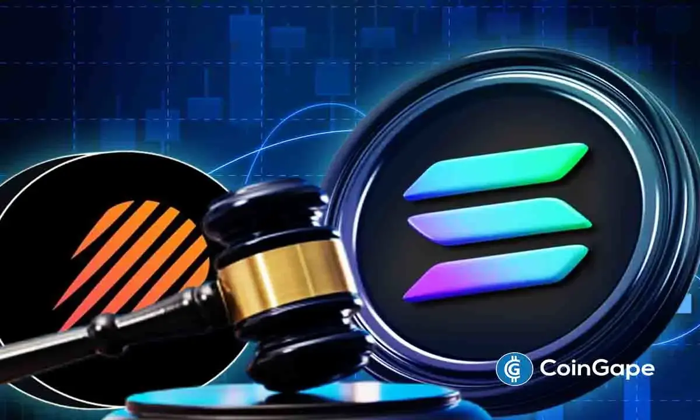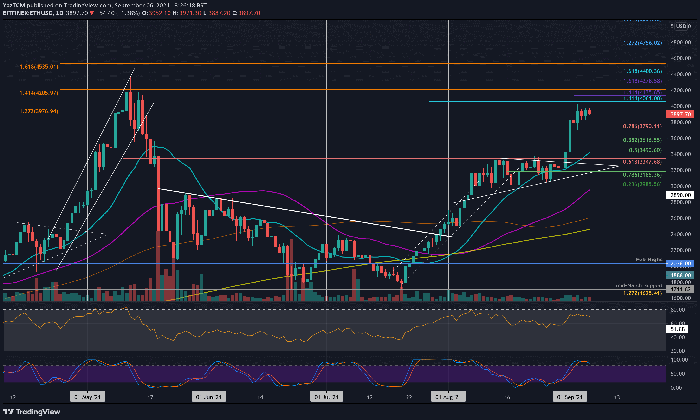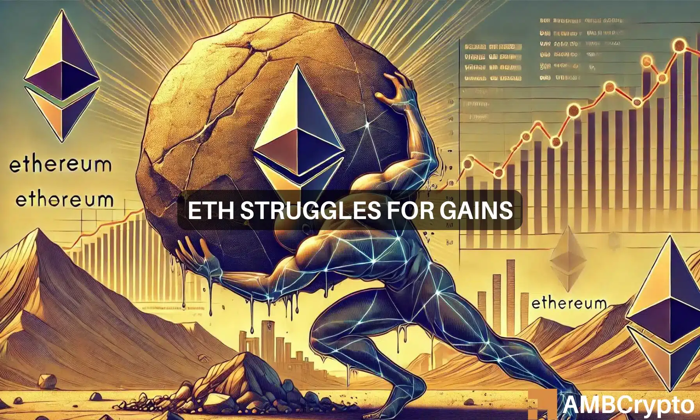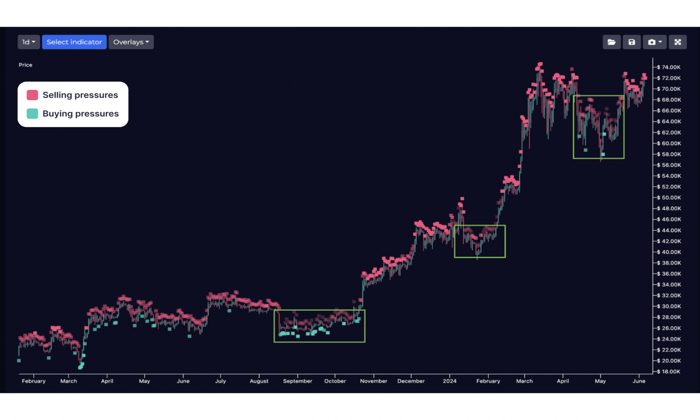The Meteora lawsuit has made headlines as it unravels allegations of a complex scam tied to the M3M3 meme coin, drawing significant scrutiny within the cryptocurrency community. Launched on the Solana blockchain, M3M3 was initially marketed as a transparent investment opportunity, but claims have emerged regarding a deliberate manipulation that allowed insiders to secure 95% of the token supply before public access. This controversy not only raises questions about the integrity of the launch but also highlights a growing concern over the prevalence of cryptocurrency scams in meme coin markets. The legal filing seeks to rectify the alleged pump-and-dump tactics that reportedly cost investors around $69 million, making it a pivotal case in defining accountability in the crypto sphere. As related lawsuits, including the Solana lawsuit, continue to unfold, the outcome of the Meteora lawsuit could have far-reaching implications for regulatory practices surrounding meme coins like M3M3.
In what can only be described as a pivotal moment for cryptocurrency investors, the ongoing controversy surrounding the Meteora platform reveals troubling allegations that threaten to reshape trust in meme coin launches. Dubbed a class-action filing, the case against Meteora centers on accusations that it knowingly allowed insiders to dominate the early stages of the M3M3 token release, leaving everyday investors vulnerable to significant financial losses. As the crypto space grapples with increasing scrutiny, this situation has sparked a broader discussion on the ethical obligations of developers and the regulations governing emerging digital assets. With terms like ‘record speculation’ and ‘cryptocurrency fraud’ now at the forefront of discourse, the ramifications from this lawsuit could very well redefine investor protection in the evolving landscape of blockchain-based finance.
Overview of the Meteora Lawsuit
The recent class-action lawsuit against Meteora has raised numerous allegations regarding the unfair launch of the M3M3 meme coin. As claimed, insiders of the Solana-based decentralized exchange allegedly acquired a staggering 95% of the token supply within mere minutes of its launch, undermining the integrity of the public trading process. These claims, if proven accurate, could set a precedent for how meme coins are launched and regulated in the future, particularly highlighting the potential for abuse in decentralized finance (DeFi) platforms.
This lawsuit, which alleges pump-and-dump schemes that have cost investors potentially upwards of $69 million, underscores broader concerns within the cryptocurrency market about transparency and investor protection. Investors who believed they were participating in a fair market may have been misled due to the allegedly covert operations by the insiders associated with Meteora. As this case unfolds, it will be vital for the crypto community to monitor the developments closely and consider the potential implications for future meme coin projects.
Pump-and-Dump Claims: What They Mean for Investors
Pump-and-dump schemes are notorious in financial markets for defrauding unsuspecting investors. In the context of the Meteora lawsuit, the claim suggests that insiders artificially inflated the M3M3 token’s price using coordinated trades among themselves before unloading their tokens at the peak. This practice not only hurts individual investors but also damages the overall trust in cryptocurrency markets and DeFi platforms. Regulators are increasingly keen on addressing these malpractices, emphasizing the need for stringent rules governing meme coins and other high-risk investments.
The fallout from these pump-and-dump allegations can be extensive. In addition to financial losses for everyday traders, reputational damage can plague the platforms involved. Companies like Meteora, which market themselves on the promise of transparency and fairness, face existential threats when such allegations arise. Retail investors, often the most vulnerable, must remain vigilant and educated about potential scams in the cryptocurrency landscape, ensuring they understand the risks associated with investing in projects like M3M3.
The Regulatory Landscape for Meme Coins
As calls for increased regulation of meme coins like M3M3 grow louder, the lawsuit against Meteora serves as a pivotal moment in the discourse around cryptocurrency governance. The plaintiffs are advocating for meme coins to be classified as securities, which could impose a slew of regulatory requirements on projects and developers. This reclassification might involve mandatory disclosures, registration processes, and stricter compliance protocols, aimed at protecting investors from scams and ensuring market integrity.
Regulatory clarity is critical, especially for a rapidly evolving space like crypto. The outcome of the Meteora lawsuit could shape future policies, potentially making it harder for illicit activities such as pump-and-dump scams to flourish. If successful, this lawsuit could force a reevaluation of how decentralized exchanges and their token offerings operate, pushing for accountability and enforced regulations that could safeguard investment.
Potential Impact on the Solana Ecosystem
The ramifications of the Meteora lawsuit extend far beyond the immediate parties involved, threatening the broader Solana ecosystem. As one of the leading platforms for decentralized finance, Solana’s reputation is closely tied to the integrity of the projects built on its technology. Allegations of insider trading and pump-and-dump activity could deter potential investors and developers from participating in Solana-based projects, leading to a chilling effect across the network.
Moreover, as Solana strives to position itself as a competitive alternative to Ethereum, maintaining investor trust is paramount. The fallout from incidents like the Meteora lawsuit can hinder its growth and innovation, making it imperative for Solana’s community and its stakeholders to advocate for regulatory standards that promote ethical practices within its protocols. Ultimately, how Solana responds to such challenges will define its longevity and credibility in the cryptocurrency market.
Predicting the Future of Meme Coins in Crypto
The ongoing developments surrounding the Meteora M3M3 token and its allegations of misconduct have sparked a broader conversation about the future of meme coins in the cryptocurrency sector. As these assets continue to attract both speculative investors and serious cryptocurrency enthusiasts, the necessity for clear guidelines and standards grows increasingly urgent. The market’s volatility and propensity for scams spotlight the weaknesses present in current trading frameworks and reinforce the need for effective governance.
In this environment, the future of meme coins may hinge upon the outcomes of lawsuits like the one involving Meteora. If judicial decisions lean towards stricter regulations, it could usher in an era where innovative projects are held accountable for their actions. Conversely, if the upcoming rulings favor the defendants, it might embolden exploiting tactics within the industry. Investors should remain wary and informed, as the landscape of meme coins is poised for transformation based on these precedents.
Consumer Protection: The Role of Class-Action Lawsuits
Class-action lawsuits like the one against Meteora highlight the essential role of consumer protections within the cryptocurrency market. These legal actions serve as a mechanism for investors to collectively seek restitution against alleged injustices. Such frameworks are necessary in the largely unregulated crypto space, where fraud can often go unchecked due to the anonymous nature of transactions and digital assets. By addressing grievances through class actions, consumers can hold powerful players accountable and potentially deter future misdeeds.
In the aftermath of scams and class actions, the broader community often calls for more robust consumer protection legislation. If laws emerge that regulate the crypto industry more tightly, they can provide a safety net for investors, thereby enhancing confidence in digital asset markets. The outcome of the Meteora lawsuit could very well serve as a catalyst for stronger consumer rights in the cryptocurrency sector, shaping how stakeholders interact with emerging technologies in finance.
Community Reaction to the Allegations Against Meteora
The allegations against Meteora have sparked outrage among members of the cryptocurrency community, as they highlight persistent issues of trust and purpose within the sector. Many investors feel betrayed, particularly those who participated in the M3M3 launch expecting a fair and transparent investment opportunity. Social media platforms have become hotbeds for discussions surrounding the lawsuit, where community members are exchanging experiences and voicing their opinions regarding the ethics of such projects.
The reaction has also given rise to calls for greater community-led accountability within the crypto space. Investors are demanding more transparency from platforms, urging them to establish clearer reporting practices and ethical standards that could prevent scams like that allegedly perpetrated by the Meteora insiders. This collective response illustrates the growing awareness of the importance of community engagement to hold stakeholders accountable and foster a healthier cryptocurrency environment.
Lessons Learned from the Meteora Case
As the Meteora lawsuit unfolds, it provides critical lessons for investors and developers alike. The allegations underscore the importance of due diligence before engaging in any cryptocurrency investment, especially with nascent projects that lack established credibility. Investors must familiarize themselves with the dynamics of token launches and be wary of offers that promise exceptionally high returns, as these could often be fronts for scams or ill-intended maneuvers.
From a developer’s perspective, the Meteora case reinforces the need for adherence to ethical practices and transparency throughout the project lifecycle. As the regulatory landscape becomes more defined, those who prioritize integrity and customer relations will likely thrive in the digital finance space, while those who engage in deceptive practices risk legal repercussions and irreparable damage to their reputations.
Future Regulations: A Path Forward for Cryptocurrency
In light of the Meteora lawsuit and similar cases, the regulatory landscape surrounding cryptocurrencies is likely to evolve significantly. Lawmakers and regulatory bodies are gradually recognizing the necessity for frameworks that will mitigate fraud and enhance investor protection. The allegations of the M3M3 launch being inherently unfair directly point to the loopholes that exist within the current systems, thereby compelling regulators to take action toward establishing comprehensive guidelines for cryptocurrency practices.
As crypto continues to integrate into mainstream financial systems, the expectation for regulatory measures will likely increase. The outcomes of the Meteora case could serve as a reference in creating a robust regulatory framework that balances innovation with consumer safety, resulting in a healthier ecosystem. Ultimately, this evolution could protect investors while also fostering sustainable growth for legitimate projects within the cryptocurrency landscape.
Frequently Asked Questions
What are the allegations in the Meteora lawsuit regarding the M3M3 meme coin?
The Meteora lawsuit accuses the project of orchestrating a pump-and-dump scheme during the M3M3 meme coin launch. Plaintiffs claim that insiders acquired 95% of the token supply before public access was allowed, misleading investors and manipulating the market for their profit.
Who are the key defendants in the Meteora lawsuit?
The Meteora lawsuit names several defendants including the project’s founder Benjamin Chow, venture firm Kelsier Labs, and executives Thomas, Hayden, and Gideon Davis. They are accused of misleading investors and conducting manipulative trading activities.
How much money did investors allegedly lose due to the Meteora M3M3 token launch?
Investors reportedly lost at least $69 million as a result of the alleged manipulative practices surrounding the M3M3 token launch on the Solana platform.
What kind of trading manipulation is associated with the Meteora M3M3 launch?
The lawsuit claims that insiders restricted public access to the M3M3 token, allowing them to purchase tokens in large quantities and artificially inflate the price through internal trades before selling off their holdings.
What legal action is being taken concerning the categorization of stake-based meme coins like M3M3?
The Meteora lawsuit seeks regulatory clarity, arguing that stake-based meme coins, including M3M3, should be classified as securities to prevent similar fraudulent practices in the future.
What does the term ‘pump-and-dump’ refer to in relation to the Meteora lawsuit?
In the context of the Meteora lawsuit, ‘pump-and-dump’ refers to a scheme where the price of a cryptocurrency is artificially inflated through misleading promotion, allowing insiders to sell their holdings at a profit before the price collapses, harming other investors.
Why has Benjamin Chow stepped down from his position at Meteora?
Benjamin Chow resigned amid allegations of insider trading and financial misconduct related to both the M3M3 meme coin launch and a separate class-action over the LIBRA token collapse.
What impact could the Meteora lawsuit have on the future of meme coins in the cryptocurrency market?
The outcome of the Meteora lawsuit may lead to heightened regulatory scrutiny and influence how future meme coins are launched, potentially necessitating stricter compliance measures to protect investors.
| Topic | Details |
|---|---|
| Lawsuit Overview | Solana’s decentralized exchange Meteora is facing a class-action lawsuit for alleged pump-and-dump activities concerning the M3M3 meme coin. |
| Claims | Plaintiffs claim insiders acquired 95% of M3M3 tokens before public trading began, resulting in at least $69 million in losses. |
| Rug Pull Allegations | The lawsuit accuses Meteora, its founder Benjamin Chow, and Kelsier Labs of orchestrating a misleading token launch. |
| Investor Deception | Insiders allegedly restricted public access, inflated prices through internal trading, and misled investors about the token launch. |
| Regulatory Implications | The lawsuit calls for stake-based meme coins to be classified as securities, which could impact future token launches. |
| Related Issues | Chow’s resignation amid insider trading suspicions ties into previous scams related to the LIBRA token. |
Summary
The Meteora lawsuit highlights serious allegations against the Solana decentralized exchange regarding the unfair launch of the M3M3 meme coin. This situation raises questions about transparency and regulatory oversight in the burgeoning cryptocurrency market, especially concerning pump-and-dump schemes. As the case unfolds, it could set a precedent for how meme coins are classified and regulated in the future, making it a significant development in the discussion of the Meteora lawsuit.
The recent class-action Meteora lawsuit has sent shockwaves through the cryptocurrency community, particularly among investors in the M3M3 meme coin. Allegations suggest that a small group of insiders acquired 95% of the token supply before it became publicly available, raising serious concerns about fairness and transparency in the launch process. With claims of pump-and-dump schemes leading to significant financial losses exceeding $69 million from December 2024 to February 2025, the scrutiny surrounding this case is intensifying. Furthermore, the lawsuit implicates various prominent figures, including founder Benjamin Chow and executives from Kelsier Labs, further complicating the narrative of trust in decentralized finance. As details emerge, the implications of the Meteora M3M3 controversy are likely to shape discussions about the regulatory landscape for meme coins and cryptocurrency scams.
In the world of digital assets, terms like the Meteora lawsuit evoke urgent conversations about investor protection and the ethics of token launches. This prominent case highlights accusations against a Solana-based exchange concerning alleged unfair practices in the M3M3 meme coin market. The claims of manipulation and preemptive accumulation of token supply by insiders before its public debut point to broader issues prevalent in the cryptocurrency landscape, reminiscent of other high-profile incidents like the Solana lawsuit. With rising concerns over pump and dump schemes, the scrutiny on initiatives like M3M3 underscores the critical need for transparency and accountability in the burgeoning crypto sector. As this situation unfolds, it marks a pivotal moment for potential regulatory reforms aimed at safeguarding investors in the volatile world of meme coins.















